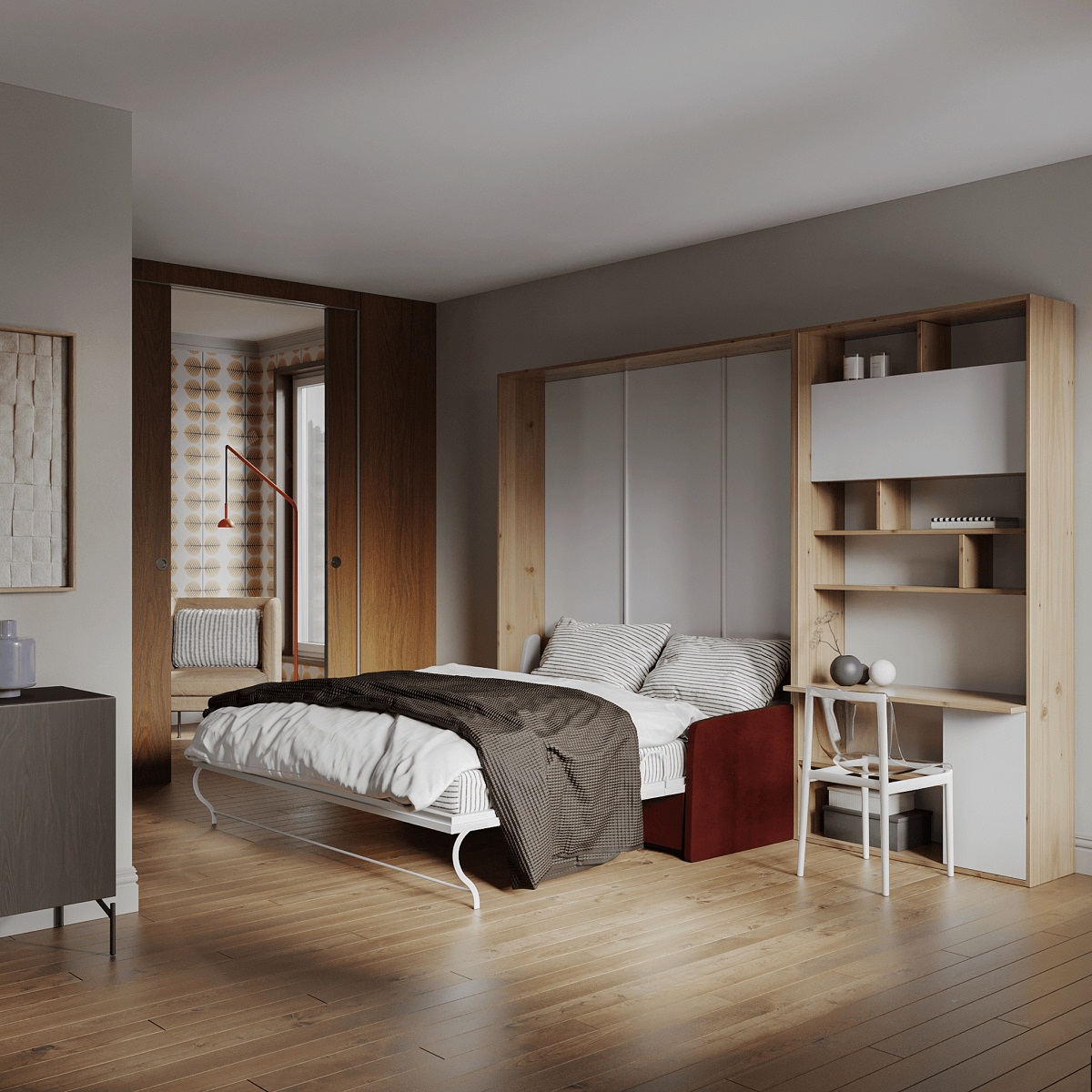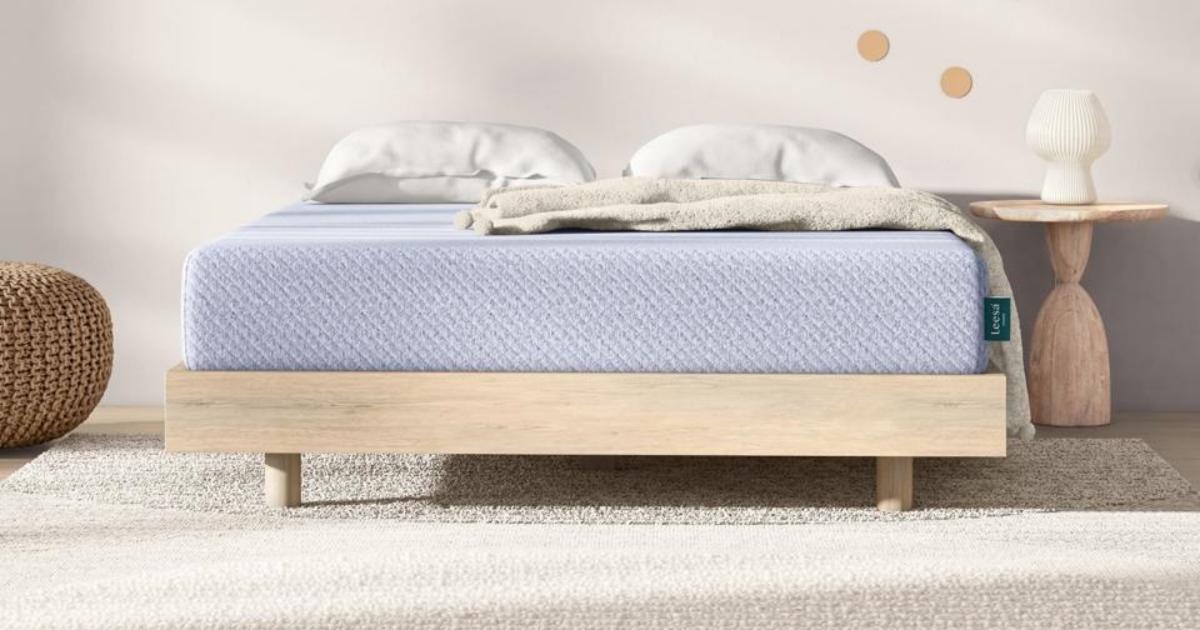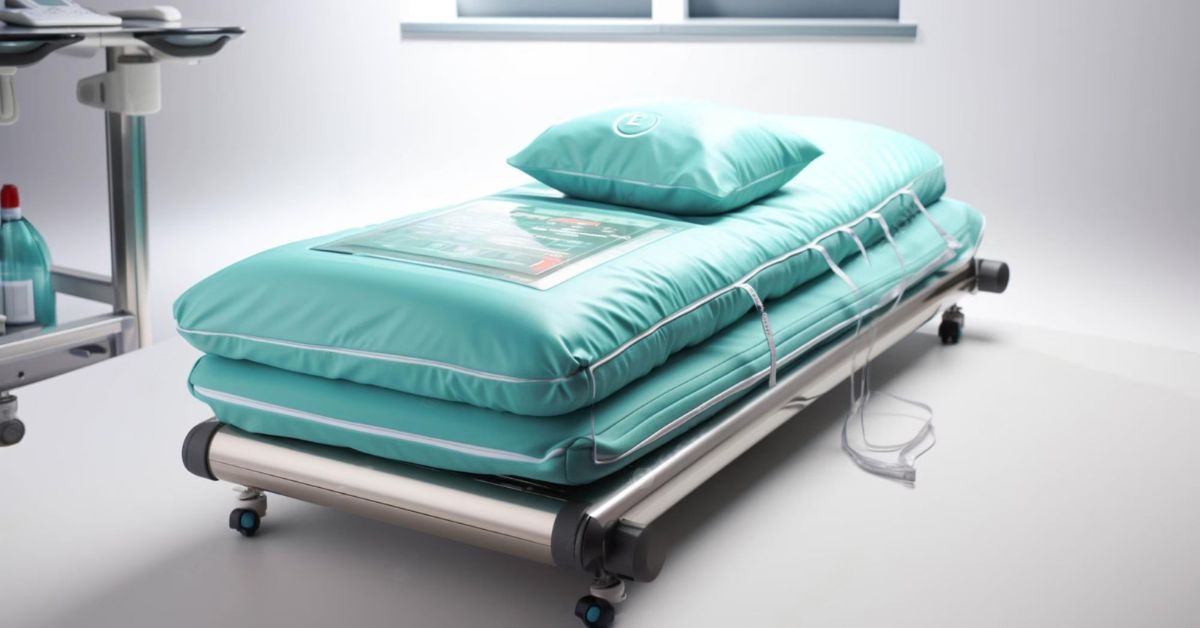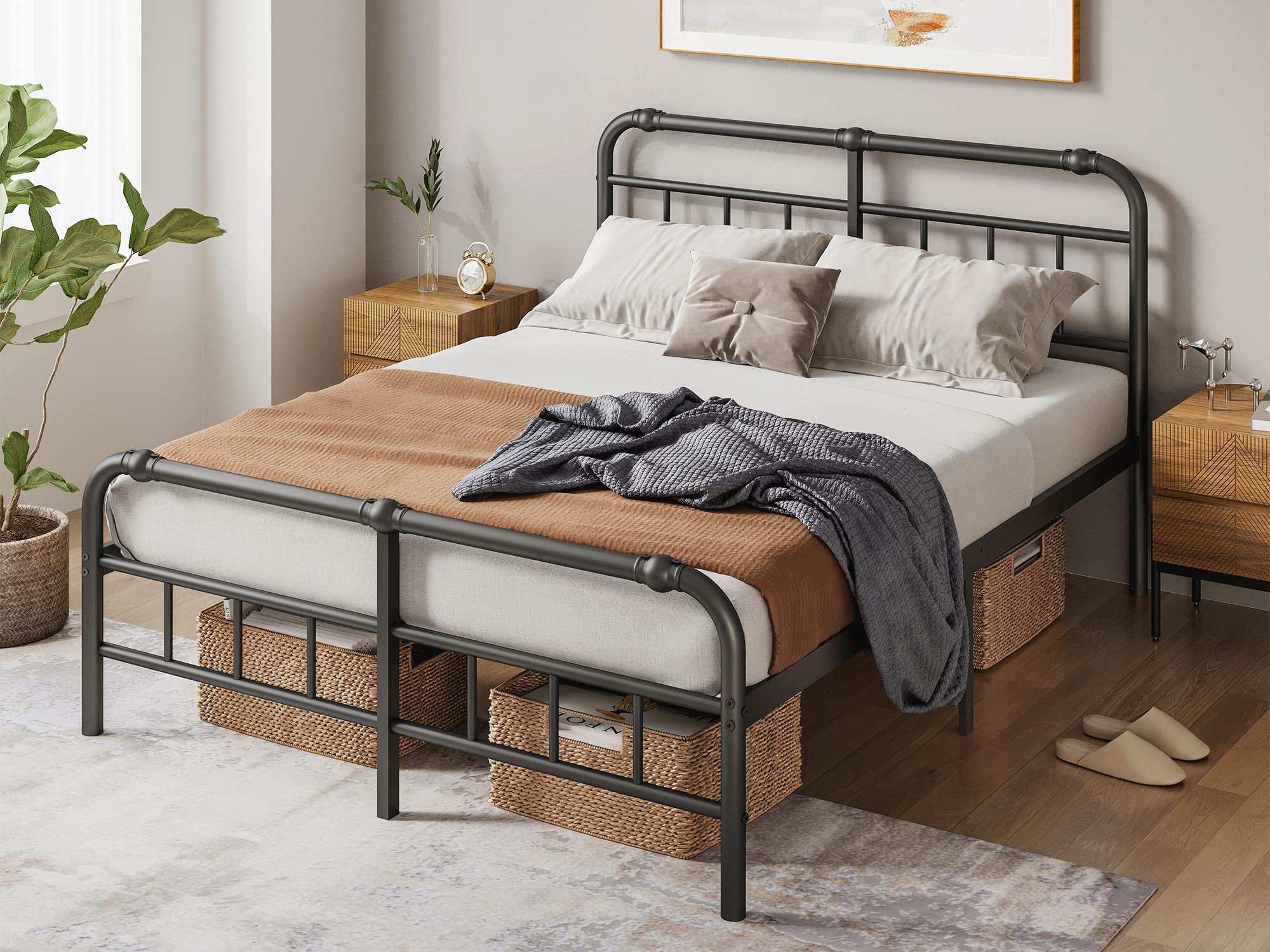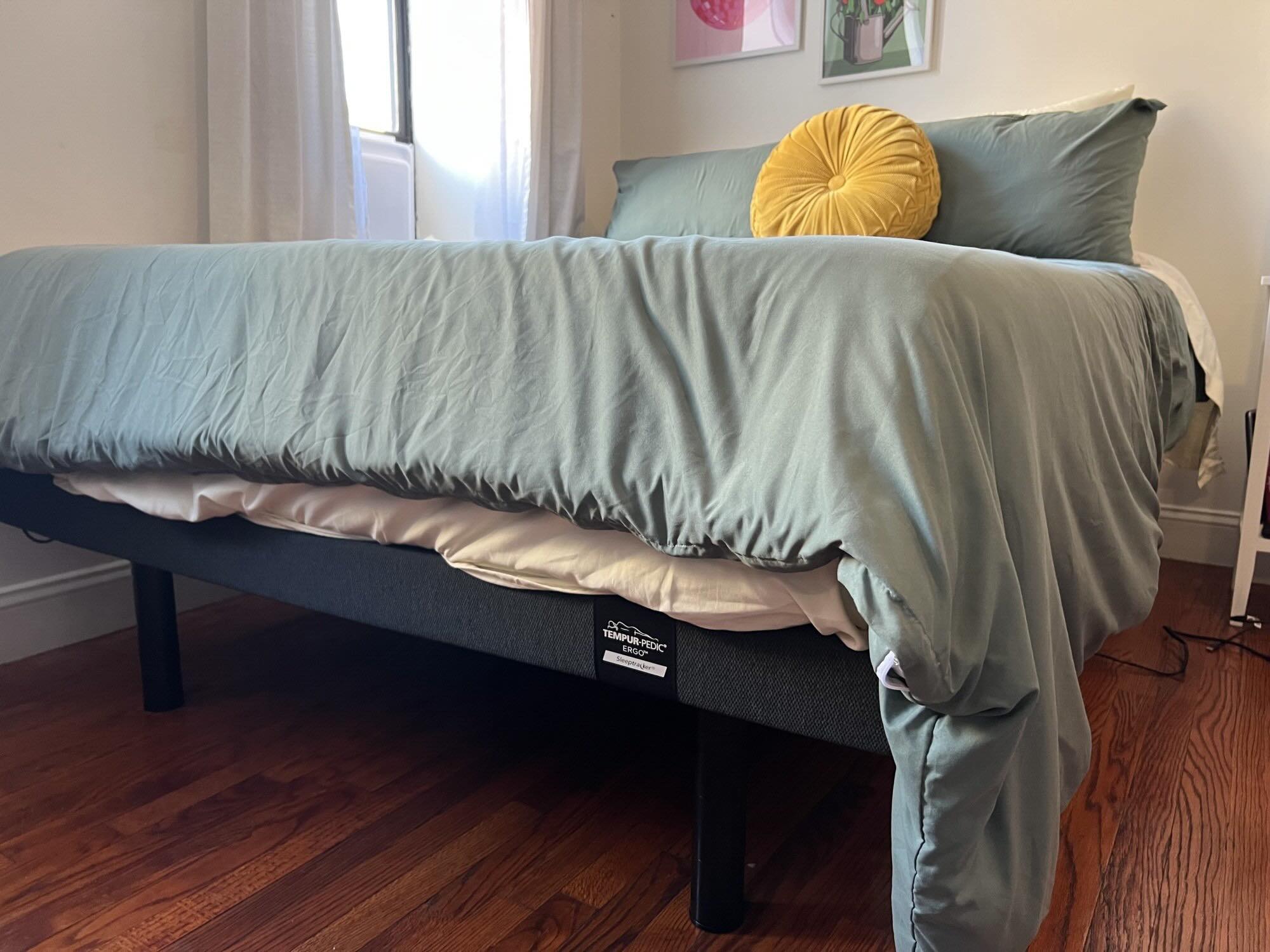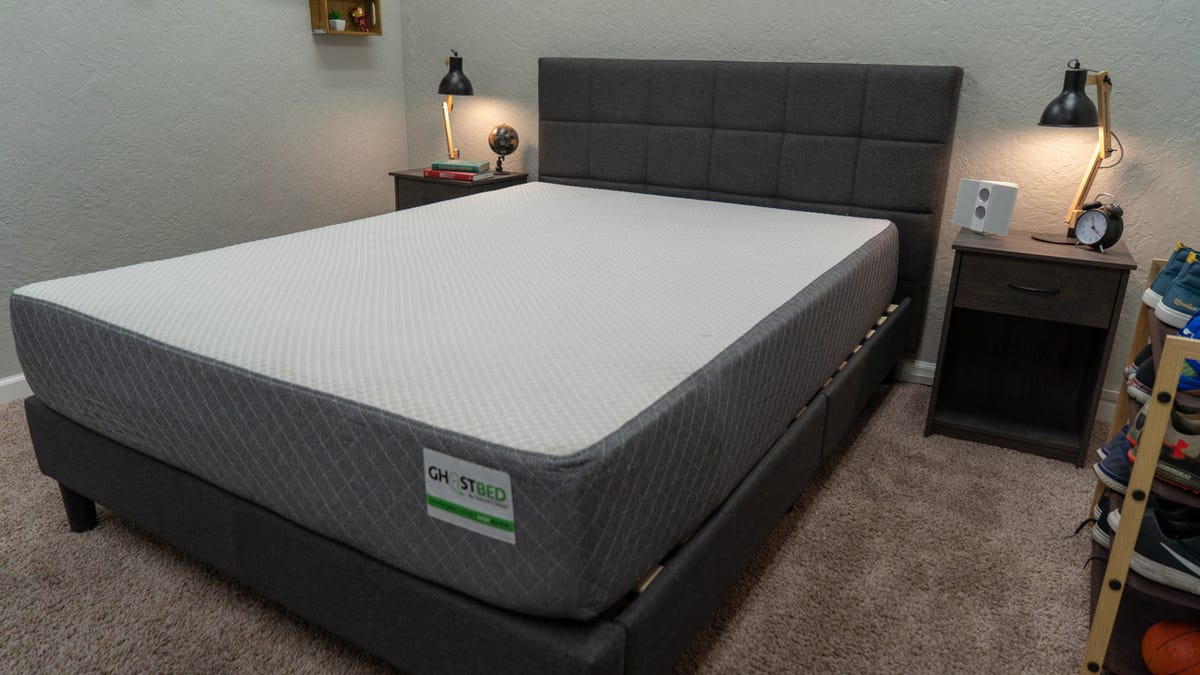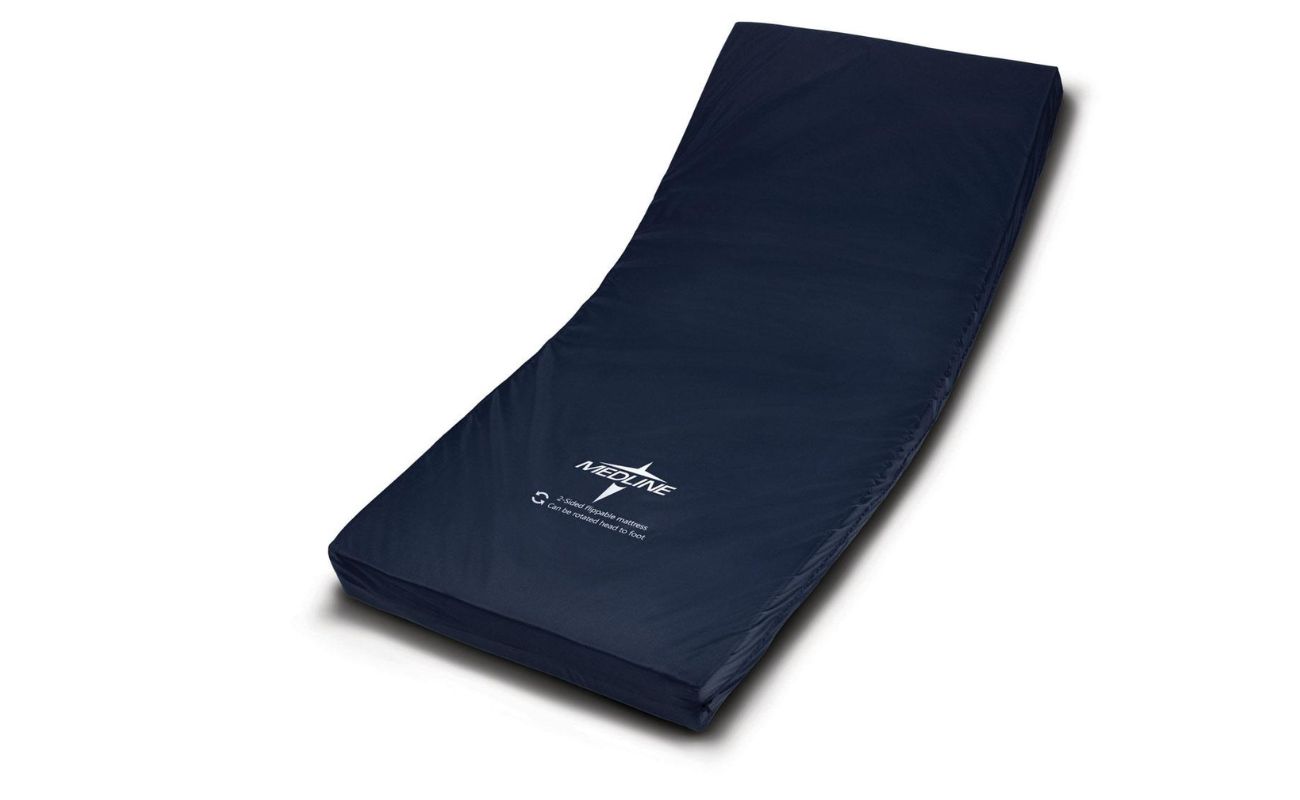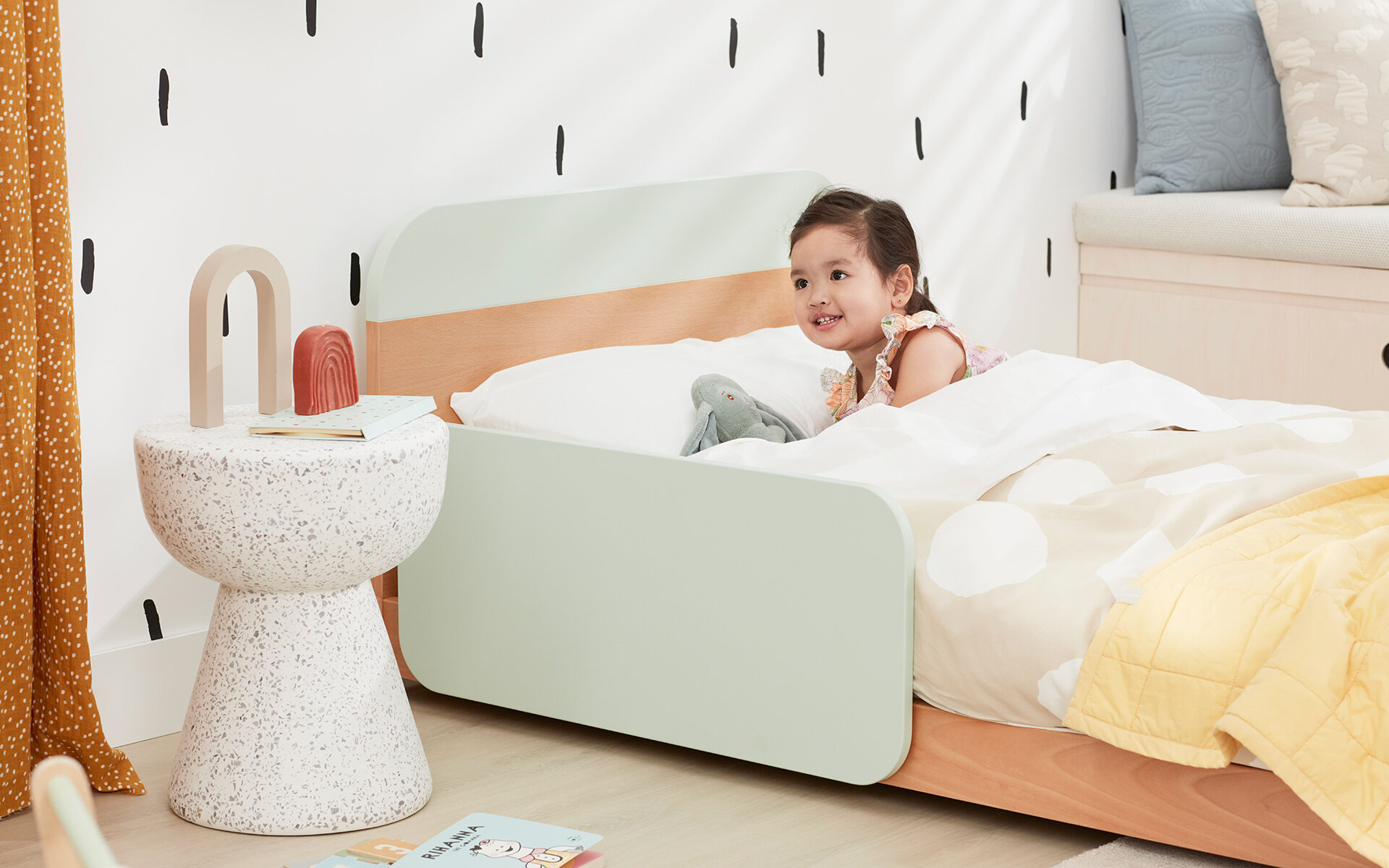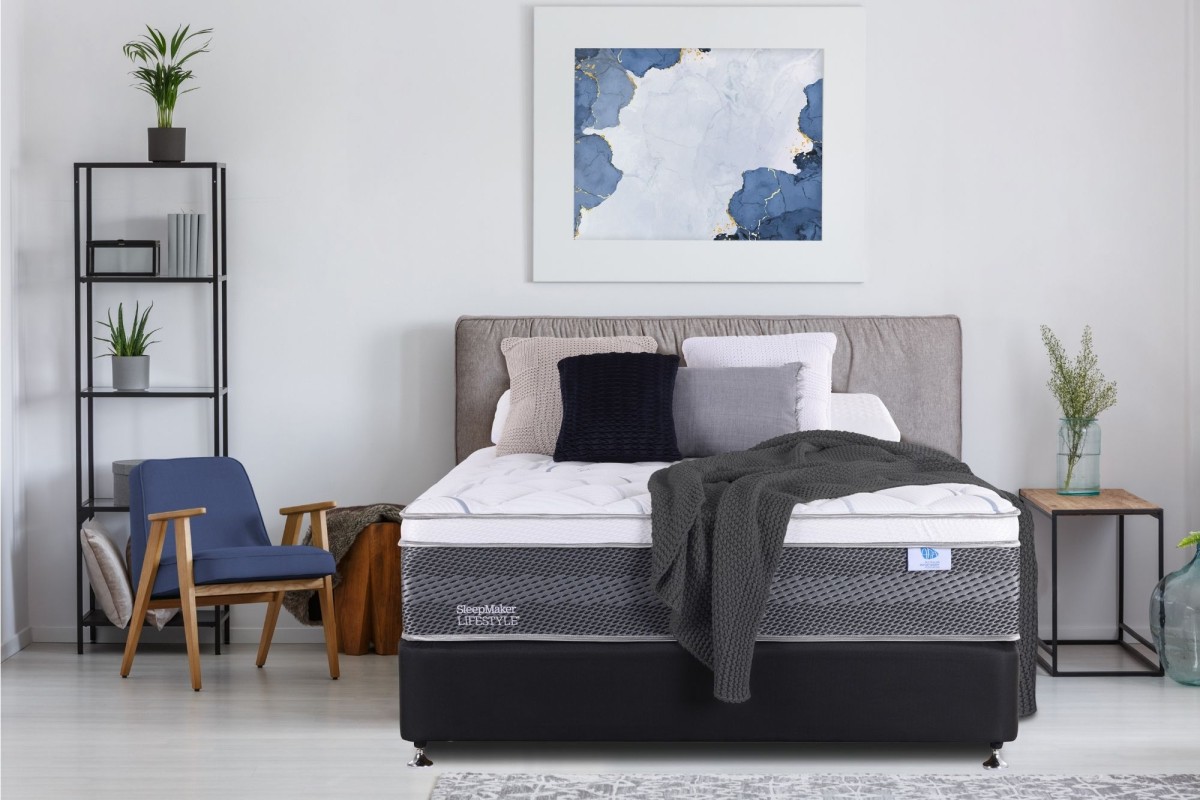Home>Furniture>Bedroom Furniture>What Is The Best Mattress For A Murphy Bed


Bedroom Furniture
What Is The Best Mattress For A Murphy Bed
Modified: December 21, 2023
Discover the perfect mattress for your Murphy bed in our extensive collection of bedroom furniture. Find the best combination of comfort and versatility today!
(Many of the links in this article redirect to a specific reviewed product. Your purchase of these products through affiliate links helps to generate commission for Storables.com, at no extra cost. Learn more)
Introduction
Welcome to the world of Murphy beds, where style meets functionality. Whether you have a small apartment or a guest room that doubles as an office space, a Murphy bed offers a versatile solution for maximizing your living area. These innovative beds can be easily folded up and stored vertically against a wall, giving you the freedom to transform your space from a cozy bedroom to a spacious living area in seconds.
While Murphy beds have become increasingly popular in recent years, choosing the right mattress for this unique bed frame requires careful consideration. A mattress that is too thick or heavy can make it difficult to fold up the bed, while a mattress that is too thin may compromise on comfort and support.
In this article, we will explore the factors to consider when choosing a mattress for a Murphy bed, as well as the different types of mattresses that are suitable for this space-saving bed frame. We will also provide tips to help you select the best mattress that meets your specific needs and preferences.
So, let’s dive in and discover the secrets to finding the perfect mattress for your Murphy bed!
Key Takeaways:
- Choose a mattress for your Murphy bed that is 10 inches or less in thickness, provides adequate support, and is lightweight for easy folding and unfolding. Consider memory foam, latex, or hybrid mattresses for optimal comfort and functionality.
- Test mattresses for comfort, read customer reviews, and take advantage of warranty and return policies when selecting the best mattress for your Murphy bed. Consider factors such as motion isolation, temperature regulation, and longevity to enhance your sleep experience.
Read more: What Is A Murphy Bed
Murphy Beds: Basics and Benefits
Murphy beds, also known as wall beds or pull-down beds, are a popular choice for those who want to maximize their living space without sacrificing comfort. These beds are named after William L. Murphy, who patented the design in the early 20th century.
The primary advantage of a Murphy bed is its ability to fold up and out of the way when not in use. This feature allows you to reclaim valuable floor space and create a multi-functional room that can serve different purposes throughout the day, such as a home office, playroom, or entertainment area.
One of the key benefits of a Murphy bed is its versatility. With a simple pull, the bed can be effortlessly lowered into a horizontal sleeping position or raised back into a vertical position against the wall. This flexibility makes Murphy beds a smart choice for small apartments, guest rooms, or any space where optimizing square footage is crucial.
Another advantage of Murphy beds is their aesthetic appeal. These beds come in a wide variety of styles, finishes, and designs to suit any interior decor, ranging from traditional to modern. You can customize your Murphy bed with additional features such as built-in storage cabinets, shelving units, or even a fold-out desk, further enhancing its functionality and practicality.
When it comes to comfort, Murphy beds can accommodate standard-sized mattresses, ensuring a restful night’s sleep. However, due to the folding mechanism and limited space available, choosing the right mattress is crucial to ensure optimal comfort and support.
In the next section, we will explore the factors you should consider when selecting a mattress for your Murphy bed, enabling you to make an informed decision that aligns with your sleep preferences and body needs.
Factors to Consider When Choosing a Mattress for a Murphy Bed
When it comes to selecting a mattress for your Murphy bed, there are several important factors to consider. These factors will ensure that you choose a mattress that not only fits your Murphy bed frame but also provides the comfort and support you need for a restful sleep. Let’s take a closer look at these factors:
- Thickness: The thickness of the mattress is crucial when it comes to fitting it into a Murphy bed. Since the bed needs to fold up vertically, you’ll want to choose a mattress that is not too thick, as it may interfere with the folding mechanism. A mattress with a thickness of 10 inches or less is generally recommended for Murphy beds.
- Weight: Consider the weight of the mattress as it can affect the ease of folding and unfolding your Murphy bed. A heavier mattress may require more effort to lift and secure in its upright position. Opt for a mattress that strikes a balance between comfort and weight to ensure smooth operation of your Murphy bed.
- Support: The support provided by the mattress is essential for a good night’s sleep. Look for a mattress that offers adequate support for your body, aligning the spine properly and relieving pressure points. A medium-firm to firm mattress is generally recommended for optimal support.
- Comfort: Of course, comfort is key when it comes to selecting a mattress. You want to ensure that you’ll have a comfortable and restful sleep experience. Consider your preferred sleeping position and any specific comfort needs, such as temperature regulation or motion isolation, when choosing the right mattress for your Murphy bed.
- Durability: Since a Murphy bed is likely to be used frequently, durability is an important factor to consider. Look for a mattress that is well-constructed and made with high-quality materials to ensure it can withstand the folding and unfolding of the bed frame over time.
- Size: Murphy beds come in different sizes, so make sure to choose a mattress that matches the dimensions of your bed frame. Whether you have a twin, full, queen, or king-size Murphy bed, selecting the correct mattress size is essential for a snug fit.
By considering these factors, you can narrow down your options and find the perfect mattress that suits both your Murphy bed and personal sleeping preferences. In the next section, we will explore the different types of mattresses that are well-suited for Murphy beds, along with their pros and cons.
Types of Mattresses Suitable for Murphy Beds
When it comes to choosing a mattress for your Murphy bed, there are various options available to suit different sleep preferences and needs. Let’s explore some of the most common types of mattresses that are well-suited for Murphy beds:
- Innerspring Mattresses: Innerspring mattresses are constructed with a system of metal coils that provide support and bounce. They are a popular choice for their affordability and traditional feel. However, they may not be the best option for a Murphy bed, as they can be heavier and less flexible, making folding and unfolding the bed more challenging.
- Memory Foam Mattresses: Memory foam mattresses are known for their contouring abilities and pressure relief. They conform to the shape of your body, providing personalized comfort and support. Memory foam mattresses are often a suitable choice for Murphy beds, as they tend to be lighter and more flexible, making them easier to fold and store.
- Latex Mattresses: Latex mattresses are made from natural or synthetic latex foam. They offer a combination of comfort and support, with a responsive and bouncy feel. Latex mattresses are a great option for those seeking natural materials and good durability. These mattresses are usually lighter in weight than innerspring mattresses, making them suitable for Murphy beds.
- Hybrid Mattresses: Hybrid mattresses combine the support of innerspring coils with the comfort of memory foam or latex layers. They offer a balance of support, pressure relief, and breathability. Hybrid mattresses can be a suitable choice for Murphy beds, depending on their weight and flexibility.
- Airbeds: Airbeds use adjustable air chambers to customize the firmness of the mattress. These mattresses allow you to inflate or deflate the air chambers based on your desired comfort level. While airbeds can offer versatility, they may not be the most practical option for a Murphy bed due to their bulkiness and weight.
- Adjustable Air Mattresses: Adjustable air mattresses combine the benefits of airbeds with additional features such as foam or latex layers. They allow you to customize the firmness level by adjusting the air chambers while also providing comfort and support. However, similar to airbeds, adjustable air mattresses may be heavier and more challenging to fold and store in a Murphy bed.
It is important to consider the weight, flexibility, and ease of folding when choosing a mattress for your Murphy bed. Memory foam, latex, and hybrid mattresses tend to be lighter and more flexible, making them well-suited for this type of bed frame. Next, we will explore the pros and cons of each mattress type to help you make an informed decision.
Innerspring Mattresses: Pros and Cons
Innerspring mattresses have been a popular choice for many years, known for their traditional feel and widespread availability. These mattresses are constructed with a system of metal coils that provide support and durability. However, when it comes to using an innerspring mattress with a Murphy bed, there are some pros and cons to consider:
Pros of Innerspring Mattresses:
- Bounce and Support: Innerspring mattresses are known for their bounce and responsiveness. The coil system provides a supportive surface that can help with spinal alignment and relieve pressure points.
- Durability: Innerspring mattresses are typically durable and can handle regular folding and unfolding without losing their structural integrity.
- Cooling Properties: The open structure of innerspring mattresses allows for good airflow, promoting better temperature regulation and preventing overheating during sleep.
- Widespread Availability: Innerspring mattresses are widely available in various price ranges, making them accessible for different budgets.
Cons of Innerspring Mattresses:
- Weight: Innerspring mattresses tend to be heavier compared to other mattress types. This added weight can make folding and unfolding the Murphy bed more challenging.
- Flexibility: The coil system in innerspring mattresses makes them less flexible compared to other mattress types. This reduced flexibility can hinder the ease of folding and storing the Murphy bed.
- Motion Transfer: Innerspring mattresses may have higher motion transfer due to the coil system. This means that movement on one side of the bed can be felt on the other side, potentially disrupting sleep for couples or light sleepers.
- Comfort: Innerspring mattresses may lack the contouring and pressure-relieving properties often found in other mattress types. This can result in less comfort and pressure point relief for some individuals.
Overall, while innerspring mattresses offer certain advantages such as support and durability, it is important to consider their weight and flexibility when choosing one for a Murphy bed. If you prefer the traditional feel of an innerspring mattress and are willing to handle the added weight, an innerspring mattress can be a suitable choice for your Murphy bed. However, if you are looking for a lighter and more flexible option, you may want to explore other mattress types such as memory foam or latex.
Read more: How To Build A Murphy Bed
Memory Foam Mattresses: Pros and Cons
Memory foam mattresses have gained significant popularity in recent years due to their ability to contour to the body and provide pressure-relieving support. When it comes to using a memory foam mattress with a Murphy bed, there are several pros and cons to consider:
Pros of Memory Foam Mattresses:
- Pressure Relief: Memory foam mattresses conform to the shape of your body, providing personalized support and alleviating pressure points. This can be particularly beneficial for individuals with back pain or joint issues.
- Motion Isolation: Memory foam has excellent motion isolation properties, which means that movements on one side of the bed are less likely to be felt on the other side. This makes memory foam mattresses a great choice for couples or individuals who are easily disturbed by movement during sleep.
- Temperature Regulation: Many memory foam mattresses incorporate cooling gel or have open-cell structures that promote airflow, keeping you cool and comfortable throughout the night. This can be especially advantageous for those who tend to sleep hot.
- Durability: High-quality memory foam mattresses are designed to be durable and retain their shape over time. This means that they can withstand the regular folding and unfolding of a Murphy bed without losing their structural integrity.
- Wide Range of Options: Memory foam mattresses come in various firmness levels and thicknesses, allowing you to choose the one that best suits your sleep preferences and comfort needs.
Cons of Memory Foam Mattresses:
- Heat Retention: While many memory foam mattresses come with cooling features, some individuals may still find that memory foam retains heat and sleeps warmer compared to other mattress types.
- Off-Gassing: When first unpacked, memory foam mattresses can release a temporary odor known as off-gassing. This odor typically dissipates within a few hours to a few days, but it may be a concern for individuals with sensitivities to smells.
- Initial Firmness: Memory foam mattresses can feel initially firm, especially ones with higher density foam. It may take some time for the mattress to conform and adjust to your body’s shape and provide optimal comfort.
- Weight: Memory foam mattresses tend to be lighter than innerspring mattresses but may still have some weight to them. However, compared to innerspring mattresses, memory foam mattresses typically offer better flexibility, making them easier to fold and store in a Murphy bed.
Considering their pressure-relieving properties, motion isolation, and ability to accommodate folding, memory foam mattresses can be a great choice for a Murphy bed. If you value personalized comfort and support, as well as minimizing disruption from movement, a memory foam mattress may be the perfect fit for your Murphy bed. However, if you have concerns about heat retention or initial firmness, it is important to explore different memory foam options to find one that addresses your specific needs.
Look for a mattress that is specifically designed for a Murphy bed, with a thinner profile to allow for easy folding. A memory foam or latex mattress can be a good choice for comfort and flexibility.
Latex Mattresses: Pros and Cons
Latex mattresses have gained popularity for their natural materials, buoyant feel, and durability. When considering a latex mattress for your Murphy bed, it’s important to weigh the pros and cons:
Pros of Latex Mattresses:
- Natural and Eco-Friendly: Latex mattresses are made from the sap of rubber trees, making them a natural and sustainable bedding option. They are often preferred by those seeking organic and eco-friendly materials.
- Pressure Relief and Support: Latex mattresses have a unique ability to conform to your body’s shape, providing excellent pressure relief and support. This can help alleviate aches and pains, especially for those with joint or back issues.
- Bounce and Responsiveness: Latex mattresses offer a responsive and buoyant feel. They provide a comfortable level of bounce, making movement on the bed easier, without the motion transfer often associated with traditional innerspring mattresses.
- Durability: Latex mattresses are known for their exceptional durability. They can withstand regular folding and unfolding without losing their shape, making them well-suited for use with a Murphy bed.
- Cooling Properties: Latex mattresses have natural breathability and cooling properties that help regulate temperature during sleep. Air circulates within the latex foam, preventing heat buildup and promoting a cooler and more comfortable sleep environment.
Cons of Latex Mattresses:
- Price: Latex mattresses tend to be more expensive compared to other mattress types. The use of high-quality, natural materials and the manufacturing process contribute to their higher price point.
- Weight: While latex mattresses are generally lighter than innerspring mattresses, they can still have some weight to them. However, compared to innerspring mattresses, latex mattresses tend to offer better flexibility, making them easier to fold and store in a Murphy bed.
- Initial Odor: Like memory foam mattresses, latex mattresses may emit a mild odor when first unpacked, but typically dissipate quickly. This is a normal characteristic of new latex foam and is not harmful.
- Firmness: Latex mattresses come in a range of firmness options, but they generally have a firmer feel compared to memory foam. If you prefer a softer mattress, you may need to explore different firmness levels to find the right balance of comfort and support.
Latex mattresses offer a unique blend of comfort, support, and durability, making them a suitable choice for a Murphy bed. If you prioritize natural materials, pressure relief, and longevity, a latex mattress can be an excellent investment for your sleep system. Although they come with a higher price tag compared to some other mattress types, the benefits they provide may outweigh the cost for those seeking a high-quality and sustainable sleep solution.
Hybrid Mattresses: Pros and Cons
Hybrid mattresses are gaining popularity for their combination of support, comfort, and versatility. These mattresses combine the benefits of different materials, typically combining foam or latex layers with an innerspring coil system. When considering a hybrid mattress for your Murphy bed, it’s important to understand the pros and cons:
Pros of Hybrid Mattresses:
- Support and Pressure Relief: Hybrid mattresses offer the support and stability of an innerspring coil system, combined with the contouring and pressure relief of foam or latex layers. This combination ensures proper alignment and helps alleviate pain and pressure points.
- Temperature Regulation: The coil system in hybrid mattresses allows for excellent airflow, promoting better temperature regulation and preventing heat retention. This can be particularly beneficial for individuals who tend to sleep hot.
- Motion Isolation: Hybrid mattresses typically have superior motion isolation due to the foam or latex layers that absorb and minimize motion transfer. This makes them a great option for couples or people who are easily disturbed by movement during sleep.
- Customizable Comfort: Hybrid mattresses come in various firmness levels, allowing you to choose the one that suits your sleep preferences. Whether you prefer a plush, medium, or firm feel, there is a hybrid mattress available to meet your specific comfort needs.
- Durability: Hybrid mattresses are designed to be durable, offering longevity and resilience. The combination of high-quality materials ensures that the mattress can withstand the folding and unfolding of a Murphy bed without losing its shape or support.
Cons of Hybrid Mattresses:
- Price: Hybrid mattresses tend to be more expensive than traditional innerspring or foam mattresses. The combination of materials and advanced construction contributes to their higher price point.
- Weight: Hybrid mattresses can be heavier than foam or latex mattresses, primarily due to the coil system. While they are generally lighter than traditional innerspring mattresses, the weight may still be a consideration when it comes to folding and unfolding your Murphy bed.
- Initial Odor: Hybrid mattresses, especially those with foam or latex layers, may emit a temporary odor when first unpacked. This is normal and typically dissipates within a few hours to a few days.
- Variable Quality: Due to the range of hybrid mattresses available on the market, the quality and performance can vary. It’s essential to research and choose a reputable brand that offers reliable and durable hybrid mattresses.
Hybrid mattresses offer a balanced combination of support, comfort, and durability, making them a suitable choice for a Murphy bed. If you desire the best of both worlds – the responsiveness of innerspring coils and the contouring properties of foam or latex – a hybrid mattress can provide the optimal sleep experience. While they may come with a higher price tag and slightly heavier weight, the benefits they offer in terms of support, pressure relief, and temperature regulation can make them a worthwhile investment.
Airbeds: Pros and Cons
Airbeds, also known as adjustable air mattresses, are a unique type of mattress that allow you to customize the firmness level by adjusting the air chambers within the mattress. These mattresses offer versatility and personalized comfort. However, when considering an airbed for your Murphy bed, it’s important to weigh the pros and cons:
Pros of Airbeds:
- Adjustable Firmness: The ability to adjust the firmness of an airbed is one of its standout features. You can inflate or deflate the air chambers to find the right level of support and comfort that suits your sleep preferences.
- Pressure Relief: Airbeds offer excellent pressure relief as the air chambers contour to your body shape, providing customized support and reducing the risk of pressure points.
- Minimal Motion Transfer: Airbeds have minimal motion transfer, meaning that movements from one side of the mattress are less likely to disturb the other side. This can be beneficial for couples or individuals who share the bed.
- Longevity: Airbeds are known for their durability and longevity. The air chambers, when well-maintained, can withstand frequent adjustments and remain supportive for many years.
- Customizable Comfort for Couples: Airbeds with dual air chambers allow each side of the bed to be adjusted independently. This is particularly advantageous for couples who have different firmness preferences.
Cons of Airbeds:
- Weight: Airbeds can be significantly heavier compared to other mattress types due to the air chamber components and the additional materials required for construction. The weight of the mattress may pose logistical challenges when folding and storing it in a Murphy bed.
- Potential Leaks: Since airbeds rely on air chambers, there is a possibility of leaks or punctures. While high-quality airbeds are designed to be durable and resistant to leaks, it is essential to handle them with care.
- Noise: Some airbeds may produce noise when adjusting the firmness level or with movement on the mattress. This can be a concern for individuals who are sensitive to noise during sleep.
- Initial Setup: Airbeds typically require initial setup, including inflating the air chambers and adjusting the firmness level. This additional step may be less convenient compared to other mattress types that are ready to use right out of the box.
- Price: Airbeds, especially high-quality models, tend to be more expensive compared to traditional mattresses. The advanced technology and adjustable features contribute to their higher price point.
Airbeds offer a unique blend of customizable comfort and support, making them suitable for those who desire personalized firmness levels. While they come with certain drawbacks such as weight and potential for leaks, their longevity and ability to accommodate different sleep preferences make them a worthy consideration for a Murphy bed. If you prioritize adjustability and individualized comfort, an airbed might be the ideal choice for you.
Read more: How To Install A Murphy Bed
Adjustable Air Mattresses: Pros and Cons
Adjustable air mattresses take the concept of airbeds to the next level by offering additional features and customization options. These mattresses allow you to adjust not only the firmness level but also other aspects like elevation and support zones. However, before considering an adjustable air mattress for your Murphy bed, it’s important to weigh the pros and cons:
Pros of Adjustable Air Mattresses:
- Customizable Comfort: Adjustable air mattresses offer a high level of customization. You can adjust the firmness level, as well as specific areas of the mattress to cater to individual needs, such as lumbar support or head and foot elevation.
- Pressure Relief and Support: With adjustable air mattresses, you can find the ideal level of support and pressure relief for your body. This can be particularly beneficial for individuals with specific pain or comfort requirements.
- Good Motion Isolation: Adjustable air mattresses often feature foam or latex layers that enhance motion isolation, minimizing disruptions from movement during sleep. This can improve sleep quality, especially for couples sharing the bed.
- Durability and Longevity: High-quality adjustable air mattresses are designed to withstand constant adjustments and maintain their structural integrity over time. Proper maintenance can ensure that the mattress remains supportive and comfortable for years to come.
- Individualized Settings for Couples: Many adjustable air mattresses offer dual-sided controls, allowing each person to customize their side of the bed to their preferred firmness and support level. This is especially beneficial for couples with differing sleep preferences.
Cons of Adjustable Air Mattresses:
- Weight: Adjustable air mattresses can be heavier compared to traditional mattresses due to the additional components required for adjustability. The weight may pose some challenges when folding and unfolding the Murphy bed.
- Complex Setup: Adjustable air mattresses may require initial setup, including connecting the air chambers, programming the remote control, and finding the ideal settings. This added step can be more time-consuming and less convenient compared to traditional mattresses.
- Price: Adjustable air mattresses tend to be more expensive than traditional mattresses due to their advanced features and technology. The cost may be a consideration for those on a tight budget.
- Noise: Some adjustable air mattresses can generate noise when adjusting the settings or with movement on the bed. This may be a concern for individuals who are sensitive to noise during sleep.
- Compatibility: It’s important to ensure that the size and dimensions of the adjustable air mattress are compatible with your Murphy bed frame. Make sure to measure and confirm compatibility before making a purchase.
Adjustable air mattresses offer a high level of customization and adaptability, making them a suitable choice for those who desire personalized comfort and support. While they come with certain considerations such as weight, setup, and price, the ability to tailor the mattress to individual preferences can significantly enhance the sleep experience. If you value customization and want full control of your sleep environment, an adjustable air mattress might be an excellent option for your Murphy bed.
Tips for Selecting the Best Mattress for Your Murphy Bed
Choosing the right mattress for your Murphy bed is essential to ensure maximum comfort and functionality. Here are some helpful tips to guide you in selecting the best mattress for your Murphy bed:
- Consider the Thickness: Opt for a mattress that is 10 inches or less in thickness. This ensures that the mattress can be easily folded and stored vertically against the wall without interfering with the folding mechanism of the Murphy bed.
- Account for Weight: Consider the weight of the mattress to ensure that it can be easily lifted and secured in its upright position. A lighter mattress will make operating the Murphy bed more effortless.
- Focus on Support and Comfort: Look for a mattress that provides adequate support for your body. A medium-firm to firm mattress is generally recommended for optimal comfort while promoting proper spinal alignment and pressure point relief.
- Choose the Right Size: Ensure that the mattress size matches your Murphy bed frame. Whether you have a twin, full, queen, or king-size Murphy bed, selecting the correct mattress size is crucial for a snug fit.
- Consider Material Type: Explore different mattress types such as memory foam, latex, hybrid, innerspring, airbeds, or adjustable air mattresses. Consider their pros and cons to determine which type best suits your comfort preferences and specific needs.
- Test for Comfort: Whenever possible, try out the mattress before purchasing it. Visit a mattress store and spend a few minutes lying down in your preferred sleeping position to assess the comfort and support it provides.
- Read Customer Reviews: Research customer reviews and ratings for different mattress options. This can give you valuable insights into the actual sleep experience and durability of the mattresses you are considering.
- Consider Temperature Regulation: If you tend to sleep hot, look for a mattress with cooling properties such as gel-infused memory foam or latex that promotes better airflow and prevents heat retention.
- Take Advantage of Warranty and Return Policies: Check the warranty and return policies offered by mattress manufacturers. A generous warranty period and a flexible return policy can provide you peace of mind knowing that you can make adjustments if the mattress doesn’t meet your expectations.
- Consult with an Expert: If you’re unsure about which mattress to choose, consult with a mattress expert or seek advice from professionals who can guide you based on your specific needs and preferences.
By considering these tips, you can make an informed decision and find the best mattress that fits your Murphy bed, provides optimal comfort and support, and enhances your overall sleep experience.
Conclusion
Choosing the right mattress for your Murphy bed is crucial to ensure a comfortable and functional sleeping space. By considering factors such as thickness, weight, support, and comfort, as well as exploring different mattress types like memory foam, latex, hybrid, innerspring, airbeds, and adjustable air mattresses, you can find the perfect fit for your specific needs and preferences.
Innerspring mattresses offer traditional support and durability, while memory foam mattresses contour to your body for personalized comfort. Latex mattresses provide a natural and eco-friendly option, and hybrid mattresses combine the best of different materials. Airbeds and adjustable air mattresses offer adjustable firmness levels for customizable comfort.
When selecting a mattress for your Murphy bed, consider the weight and thickness to ensure ease of folding and unfolding. Pay attention to factors such as motion isolation, temperature regulation, and longevity to find a mattress that suits both your sleep preferences and the unique requirements of a Murphy bed.
Don’t forget to test the mattress for comfort whenever possible and read customer reviews to gain insight into the actual sleep experiences of others. Take advantage of warranty and return policies to ensure peace of mind with your purchase.
With careful consideration and research, you can find the best mattress for your Murphy bed that provides optimal support, comfort, and durability. The right mattress will not only enhance your sleep but also maximize the functionality and enjoyment of your living space. So, dive into the world of Murphy beds and find the perfect mattress to complete your sleep sanctuary!
Frequently Asked Questions about What Is The Best Mattress For A Murphy Bed
Was this page helpful?
At Storables.com, we guarantee accurate and reliable information. Our content, validated by Expert Board Contributors, is crafted following stringent Editorial Policies. We're committed to providing you with well-researched, expert-backed insights for all your informational needs.



